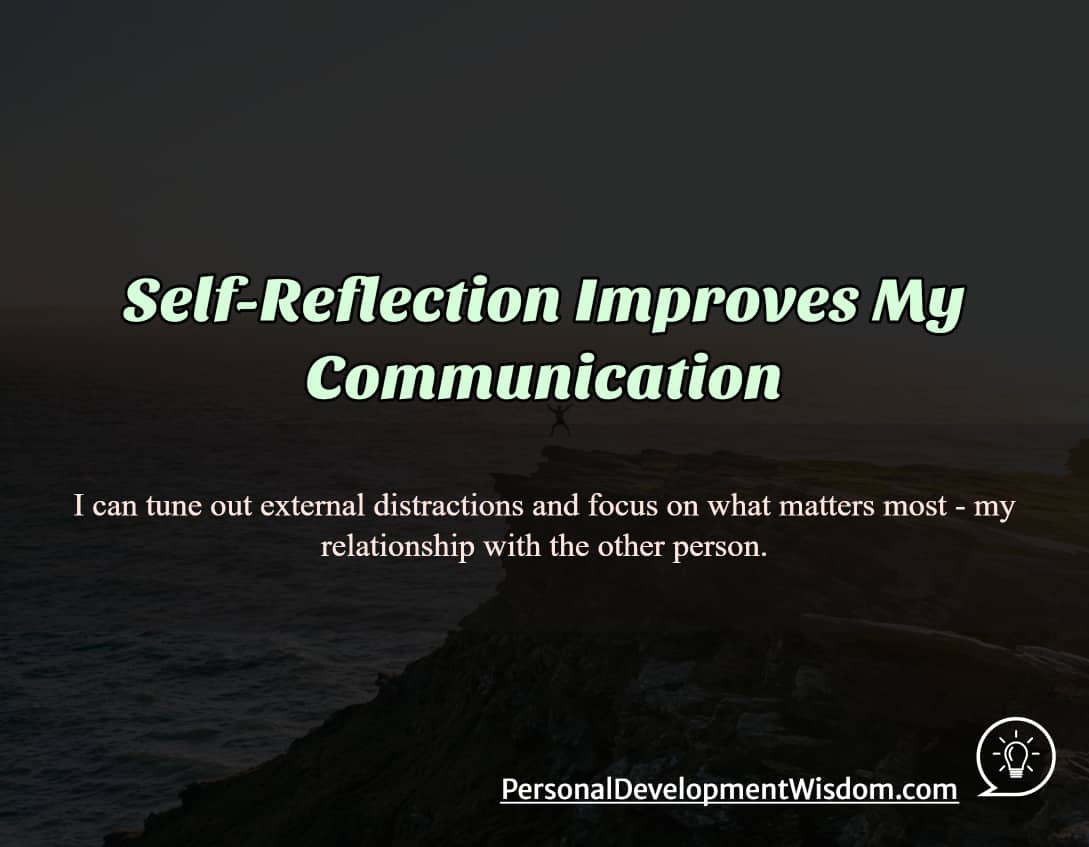Self-reflection is an essential part of improving my communication skills.
When I feel insecure or unsure, I tend to speak fast, and my natural instinct is to talk as quickly as possible to fill the void. When I notice that I am talking too quickly, I slow down and become aware of how I am feeling.
I look for where I may have been triggered by the person I am speaking with and I ask myself, “What is my fear here?” Then I check in with my body. Is my body tense? Are my hands shaking? Do I feel scared? Once I recognize that I am triggered, I slow down my speech rate until I feel calm again.
I use my listening skills to hear the meaning behind the words spoken to me. I try to understand what the speaker means within the context of the conversation.
I stop if I sense that I am coming across as critical or judgmental. I pause and consider whether my feelings are genuine. If needed, I apologize and change the course.
I practice asking open-ended questions to clarify misunderstandings. Asking open-ended questions helps me stay focused on understanding rather than judging, and it enables me to better understand people through empathy and compassion.
My listening skills improve when I pay attention to non-verbal signals. They help me know what the other person needs.
Today, I can tune out external distractions and focus on what matters most – my relationship with the other person. My relationship with myself also grows stronger.
Self-Reflection Questions:
- Can I recall times when my emotions affected my speaking style?
- Have I experienced feeling triggered by another person during conversations?
- Can I name some ways I can improve my listening skills?
